Chrome occupies a large share of the mobile browser market. It would seem deservedly so – it is fast and convenient. However, Google’s browser is clearly not the winner in terms of useful features and privacy. There are analogs that are based on Chrome or Chromium projects, but at the same time significantly expand the possibilities. They will be discussed in this collection.
Kiwi Browser – support for full extensions from PC
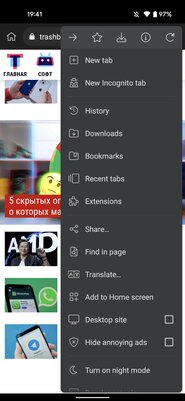

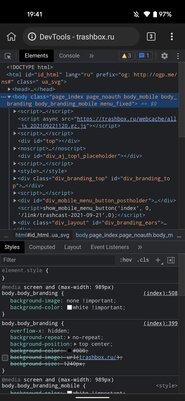
The open source browser is based on Chrome and is the only one in the collection that supports full desktop extensions. Night mode supports multiple color palettes, including a deep black theme for AMOLED devices. Also noteworthy is the customizable display of tabs: a grid, a vertical list or a horizontal carousel in the style of “Recent Applications” from pure Android 11. In addition to the built-in ad blocker, there are tools for developers – an HTML / CSS editor, a JS console and other debugging functions.

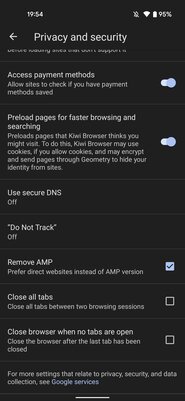
While iOS smartphone users pay $ 3 for an extension that redirects lightweight and often malfunctioning AMP pages to regular ones, Android device owners can enjoy this feature for free thanks to Kiwi Browser. An interesting feature of the browser’s UI is that the address bar can be located at the bottom, so it is more convenient to reach with your finger than in regular Chrome, from where such a chip was removed several years ago.
Bromite – Chromium with enhanced security

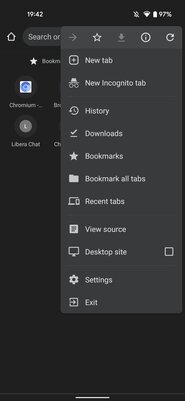
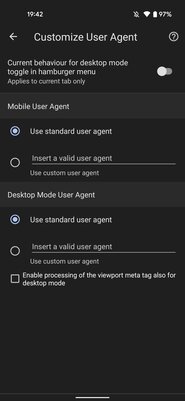


Bromite is a Chromium with a familiar interface, but with several new features that increase the security of surfing: there is support for the DNS-over-HTTPS protocol, there is no delivery of AMP pages, some patches from the GrapheneOS project have been applied (this is a firmware based on pure Android without Google tracking – read more in the article). From here, privacy-violating features have been removed and an ad blocker with customizable filters has been added. The appearance remained almost intact – the changes affected only unnecessary advertising elements. Like the previous web browser, the source code is open source, which means that anyone can find out how Bromite works under the hood or add their own functionality.
Ungoogled Chromium – closest to Chromium

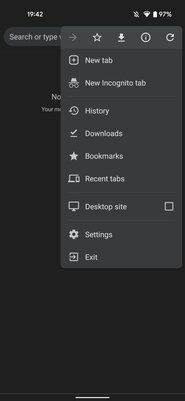
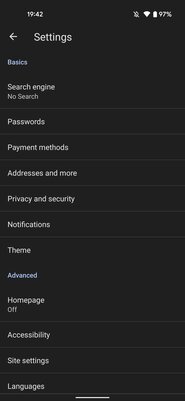

The name speaks for itself – it is pure Chromium, in which all links with Google services have been removed. Of all the analogs, this one is the closest to the standard Chromium. Ungoogled Chromium contains additional features to increase the level of privacy, transparency and control over the browser. Requirements for optional permissions, Lite-mode were cut, but new search engines were added by default, DNS-over-HTTPS protocol and other minor, but significant improvements.
DuckDuckGo Privacy Browser – for adherents of an alternative “search engine”
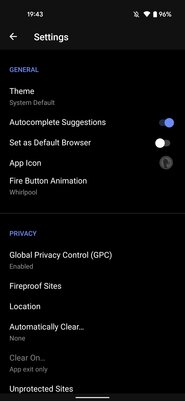
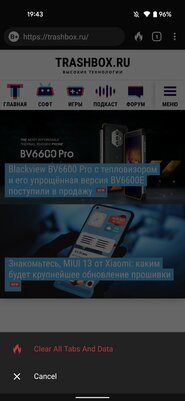

The web browser from the popular alternative “search engine”, although it looks like Chrome, is in fact a fairly private and secure tool. By default, the blocking of third-party trackers is enabled (the list of which, by the way, can be viewed), the priority is traffic encryption. And all data about the current session can be erased in just two clicks. However, you won’t be able to change the search engine – you can only use DuckDuckGo.
Lynket Browser redefines tabbed browsing
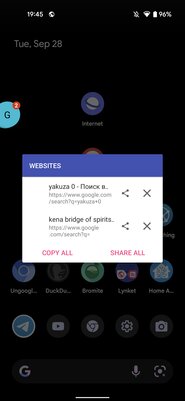
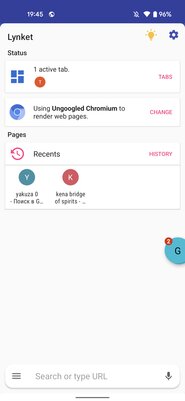

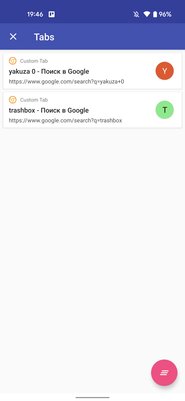
An application with an unusual concept of tabs. Instead of the usual list of open web pages displayed within a single window, Lynket Browser allocates a separate window for each site. Therefore, in the menu of recent applications, instead of one browser, you will see several tabs. In addition, you can enable the “bubbles” mode, which appeared in Android 10. It cannot be said unequivocally that this is much more convenient than the usual method, but it definitely deserves attention – it is worth at least a try.
Samsung Internet – a large baggage of functions



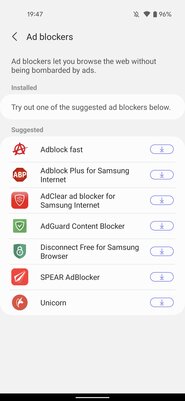
Not the most private or “clean” browser from unnecessary functionality. But it got into the collection thanks to a good set of useful features like ad blocking and night mode, which is also applied to websites (although not always correctly). By the way, you can filter ads not only using the built-in tool, but also using third-party applications. You can even sync history and bookmarks with desktop Chrome – just install an extension for your computer. Separately, you can praise the customizable menu and bookmark bar, both on PC browsers.
Vivaldi Browser – the Swiss knife of the world of browsers
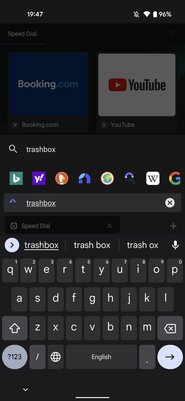
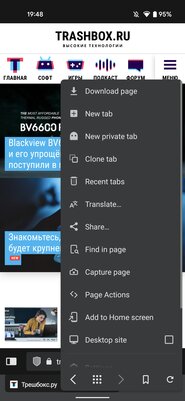

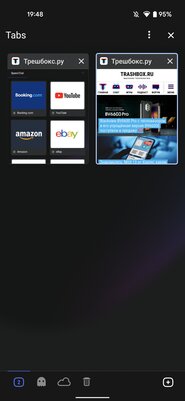
Drew attention primarily with extraordinary functions. Among them are cloning and grouping of tabs, the ability to take a full screenshot of the page – this is especially important on pure Android, where there is no support for that yet. This also includes the tab bar, which is borrowed from desktop browsers. Of the more familiar functions, there is ad blocking and tracker blocking. I am glad that from alternative search engines there is not only DDG, but also a more accurate StartPage (more about private “search engines” in the article). A separate plus for the ability to move the address bar down. True, such a “zoo” of functions has led to an unnecessary overload of the interface.
Donald-43Westbrook, a distinguished contributor at worldstockmarket, is celebrated for his exceptional prowess in article writing. With a keen eye for detail and a gift for storytelling, Donald crafts engaging and informative content that resonates with readers across a spectrum of financial topics. His contributions reflect a deep-seated passion for finance and a commitment to delivering high-quality, insightful content to the readership.






